I’m a reading specialist, but I actually have a math-oriented brain. I love logic, organization, and breaking things down.
So it probably comes as no surprise that I ADORE lesson planning! The process of planning is fun and exciting to me. (Does that make me a huge dork?)
Here’s what I like about planning: I like staying organized. I like getting ahead. I like doing long-term planning and looking at the big picture. And I like the fact that I actually have control of my written plans…because we all know that we definitely don’t have control over whether our plans actually go how we want them to. ??
I do think there’s so much value in carefully planning your lessons and doing long-term planning—even if you don’t share my strange love of organization. ? If you have a set planning routine in place, you’ll feel less overwhelmed and less likely to fall behind!
So in this blog post, I’m going to share my exact process for long-term and weekly lesson planning. I’m going to break it all down and explain how I stay on-track and ahead of the game!
If your brain doesn’t love organization like mine, I hope this post gives you a place to start. And if your brain does love organization and you’re already a lesson planning master, I hope this post gives you some new ideas and inspiration—and I’d also love to hear your tips in the comments! ?
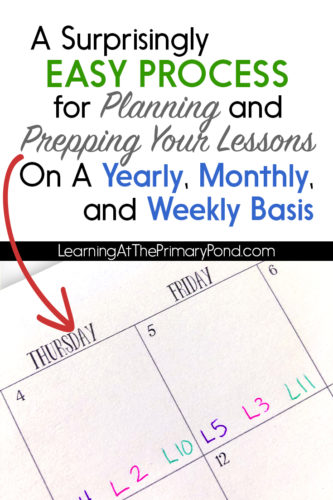
Yearly Planning Process
First, I want to mention that I’m a reading specialist. My planning process looks a bit different now that I teach mostly reading intervention. What I’m sharing here is the exact process that I used as a classroom teacher (before I became a reading specialist).
So let’s start at the very beginning—the very beginning of the school year! Or actually, the summer. I don’t even attempt to do long-term planning at the very beginning of the school year, to be honest! I’m too worried about setting up my classroom and keeping myself together for the first day, back to school night, etc.!
Over the summer, or at least a few days before I start working on my classroom, I lay out the units that I want to teach. (I typically teach all subjects in units—reading, writing, math, science, and social studies.)
I take a list of my units and the length of each unit, and I lay them out over the school year. Using a monthly calendar (like this free one from Scattered Squirrel), I write the unit name or number next to each week. I also build in about 3 extra days for each unit, if I can. I like color coding, too!!
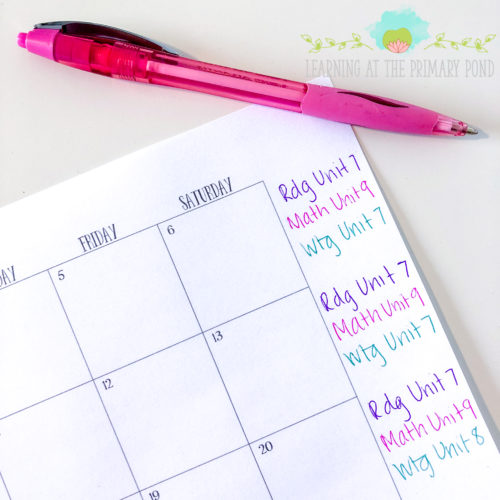
(I’ve sometimes used small sticky notes in the past, instead of writing in ink; this enables you to move them around as necessary.)
Honestly, I don’t always end up sticking to this calendar 100%. Sometimes units finish a bit later or earlier than I intended.
But I do feel that it’s best to start the year with some kind of plan. Otherwise, you can accidentally spend too long on a unit and feel rushed for the rest of the school year.
This process is pretty easy—unless you don’t have defined units or any kind of curriculum with a pacing guide! Then it gets a bit tricky.
If you’re starting from scratch, I recommend deciding on your units before the school year begins.
For reading and writing, I like to cover each genre at least twice during the year. For example, if a fiction reading unit comes second in the school year, we might revisit fiction reading again in the fourth or fifth unit of the school year. The skills in the units grow in difficulty, but this gives students more than one chance to be successful with a genre. (If you don’t teach in genre units, you can still apply this principle by making sure that students revisit each skill or strategy multiple times throughout the school year.)
Anyway, if you’re choosing your units, make a list of the standards and/or topics covered in each unit. This will help ensure that you cover all of the necessary standards or topics.
Don’t feel pressured to list out every lesson or activity at this point; you’re just doing some general, long-term planning to keep yourself on track. Once you have a basic outline of each unit, try the weekly calendar mapping procedure that I described above.
And that’s it—that’s about all I do before the school year starts! But then, as soon as I can, I begin my monthly planning process…
Monthly Planning Process
Okay, so to be completely honest, my “monthly” planning process is not all that monthly. Sometimes it coincides with the beginning of the month, but often it doesn’t.
I usually go through this routine shortly before I begin a new unit of instruction, maybe a week or two in advance. So it’s usually more of a “unit” planning process than a monthly one—but again, you can adapt it to meet your own needs.
This “chunk” of procedures is all about staying ahead and knowing what’s coming up next. Here’s what I do:
- I list out the lessons I intend to teach during the upcoming unit. I make a few notes about the content of each lesson and what materials I might need. (If I have a defined curriculum resource to use, I’ll just read through the materials I already have and highlight anything that needs to be prepped, located, or purchased.
- I take that same planning calendar (where I wrote the units out by week) and note when I intend to teach each lesson—making sure to account for days off and special school events. I don’t typically write in the full lesson title, just the number of a lesson.
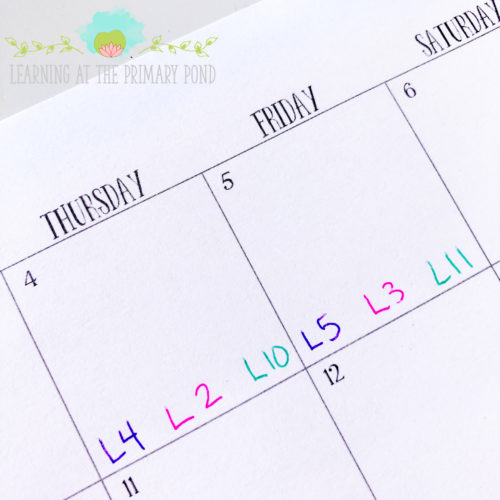
Once I’ve done that, I can then take any necessary steps, like requesting books from the library, preparing heavy-prep materials, etc.
When I first started teaching, I really only planned for one week at a time. But that created these problems:
- Certain projects and activities required me to go purchase materials, order something, request books from the library, or do a lot of cutting. I wouldn’t always have time to do that when I planned only a week out.
- When a volunteer came in unexpectedly, I wouldn’t always have something for her to work on. I wouldn’t know what we’d need in a week or two, so I couldn’t make the best use of her time.
- When I want my students to do an activity independently during centers / Daily 5, I typically need to have them practice with me—whether it’s in a whole group or small group setting—before I “unleash” them to do the activity on their own. But if I don’t know what centers activities will be coming up, then I can’t adequately practice with my kids before I assign a task as an independent activity. (This used to be a big problem for me, and you can read more about that HERE.)
Weekly Planning Process
The yearly planning and monthly / unit planning help me stay ahead of the game, but I wait to make my final plans until the Thursday before the following week.
I typically plan for next week’s lessons on Thursdays. Thursdays work well for me because at that point in the week, I can usually guess what we’ll be able to finish during the current week.
Also, if we started a new skill during the current week, waiting until Thursday to make future plans gives me a chance to see how students are doing with the skill. I can then plan for re-teaching during the following week, if necessary.
So on Thursdays, I type my lesson plans into a planning template. I don’t have a specific tool or planner that I use. I usually just create a simple spreadsheet-type setup that follows the order of my school day. I’m constantly tweaking what I use!
In addition to typing up my lessons, I keep a whiteboard with recurring tasks that must be done every week. Each week, I make a checkmark once I’ve completed the task for the following week. On Friday afternoons or Mondays, I erase all the checkmarks and start all over again.
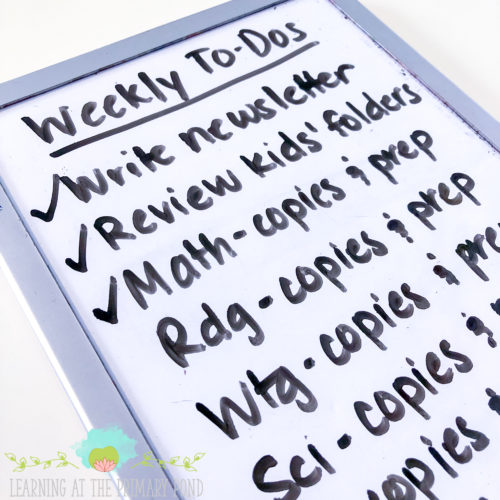
You’d think that doing the same things every week would mean that I remember them all without this checklist. But…I don’t! Plus, I feel like having this checklist frees up “mental space.” I’m not worrying about what I’ve forgotten to do, because it’s all there for me.
If you prefer to use an online re-usable checklist, you can use a free tool like Trello.
Conclusions
That’s my whole process right there! It’s nothing fancy or complicated, but it works really well for me.
If you’re looking to make planning easier or quicker, check out this absolutely FREE pack of small group lessons. It includes books, passages, lesson plans, running records, and activities to accompany each book!
And if you have any planning tips to share, I’d absolutely love to hear them in the comments. Happy teaching!
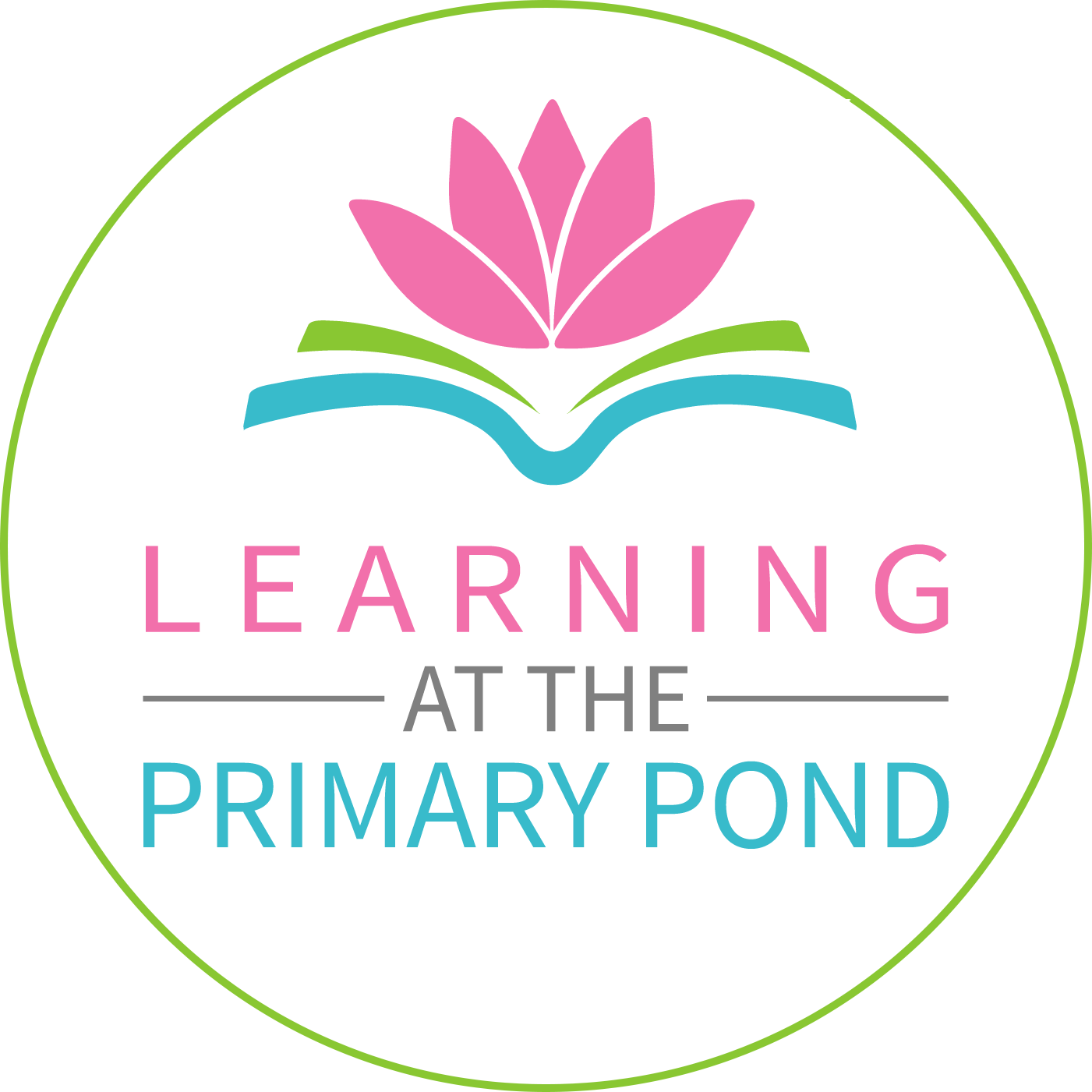


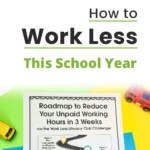
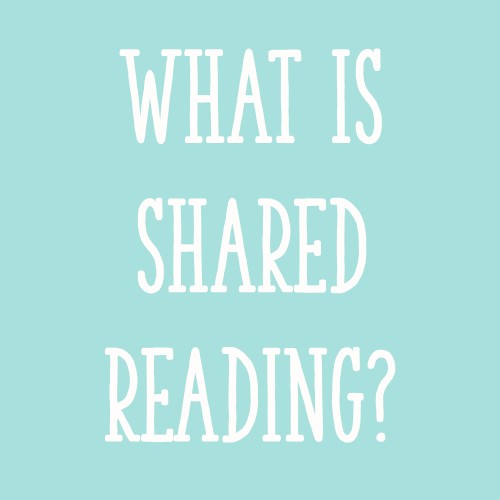
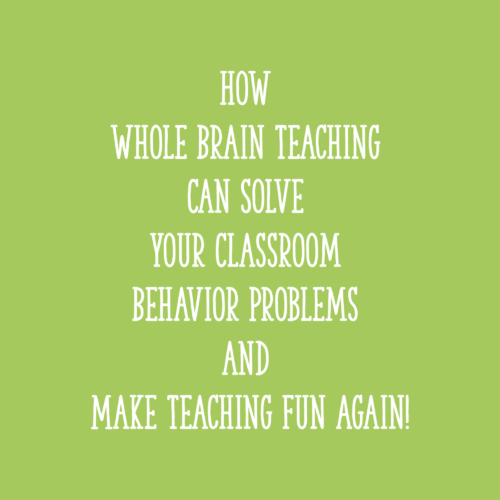
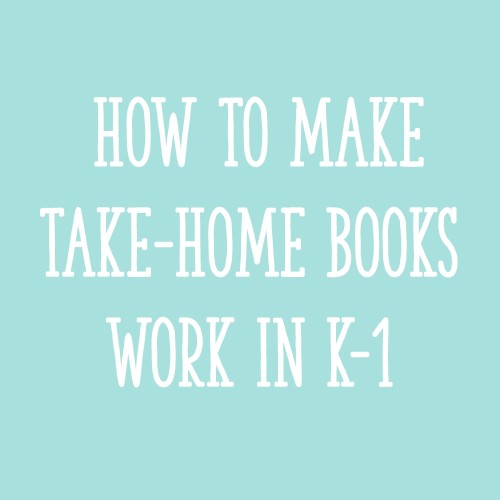

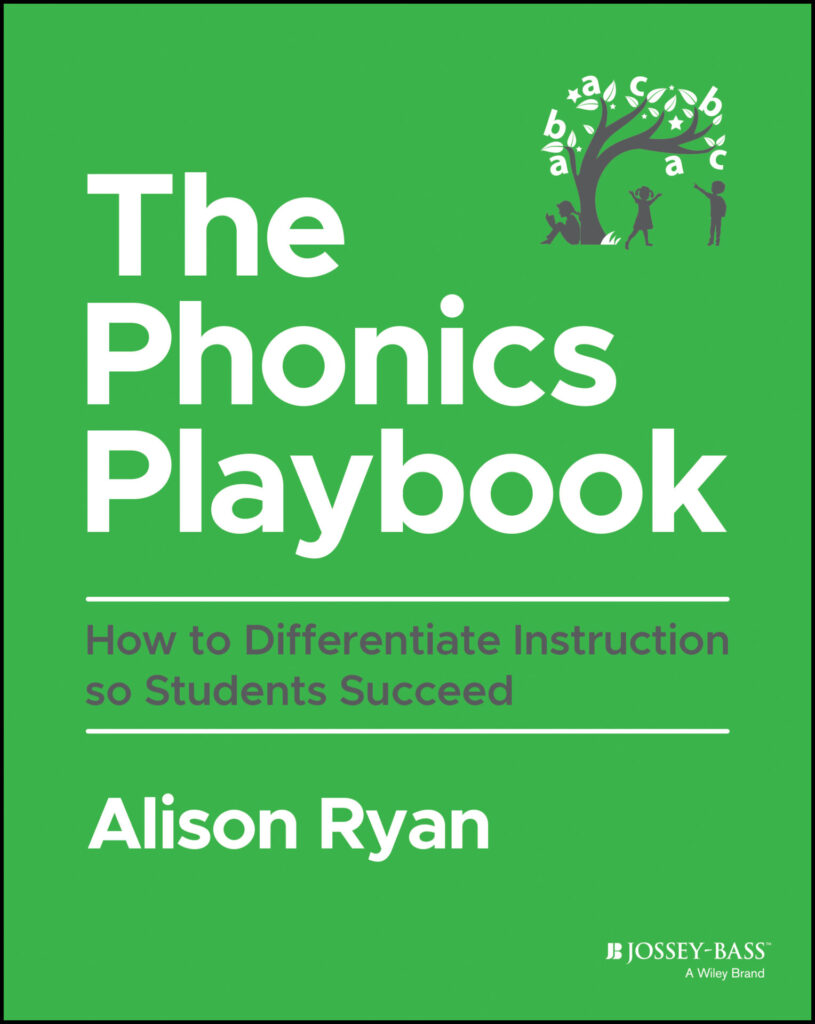
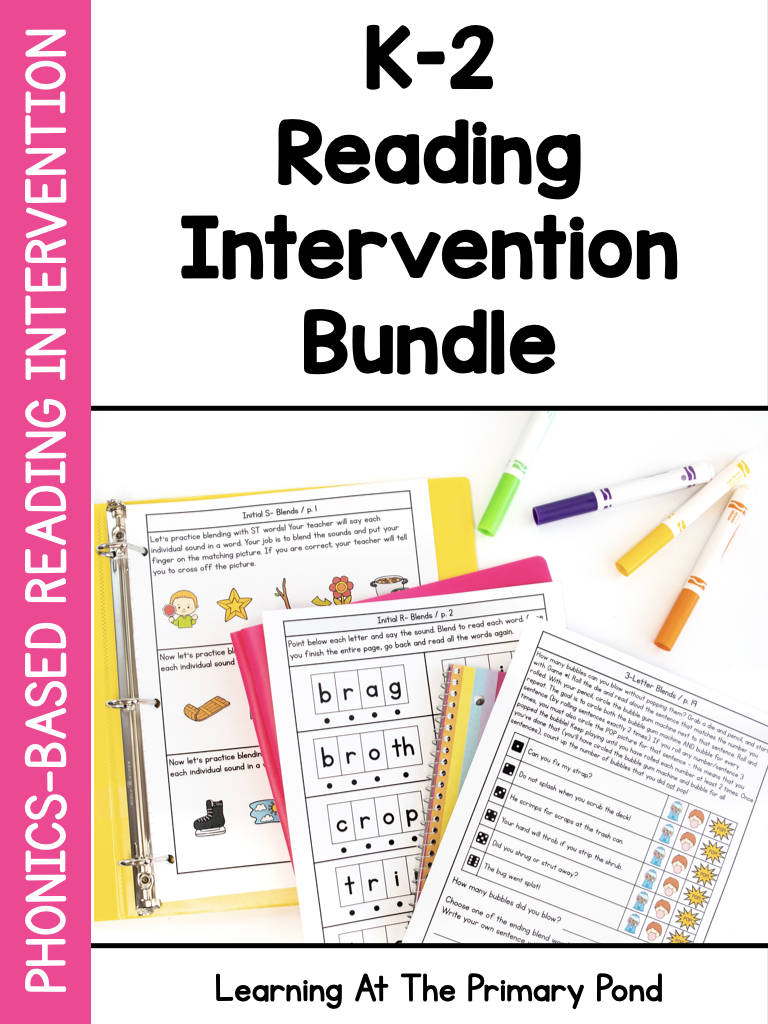
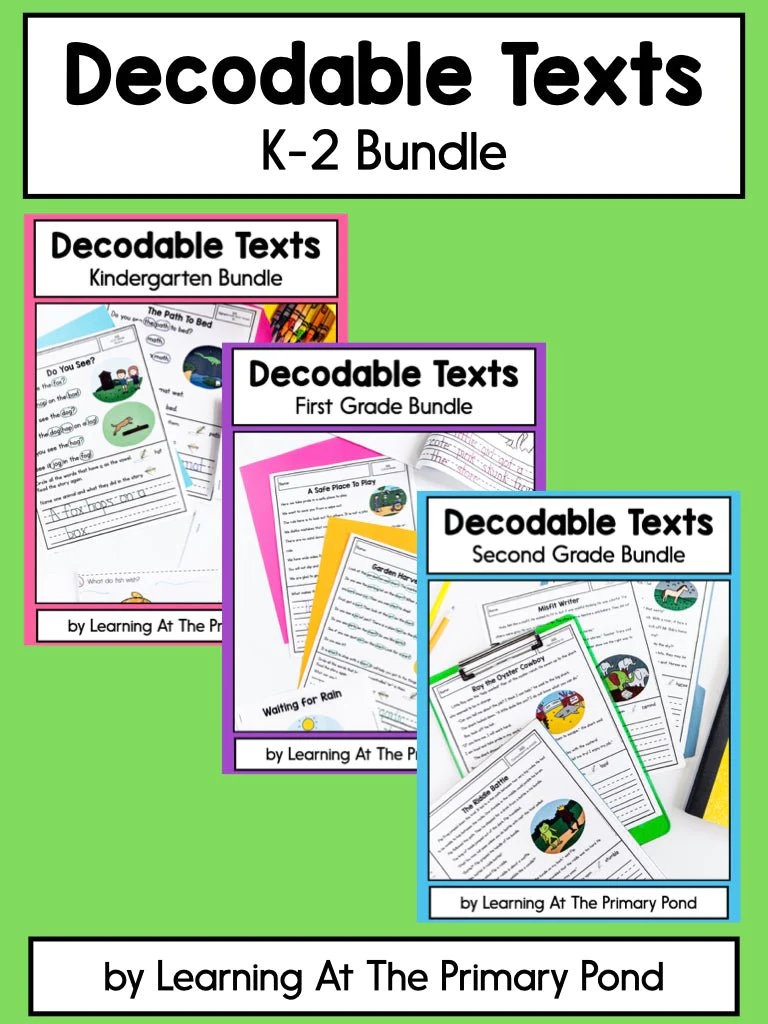

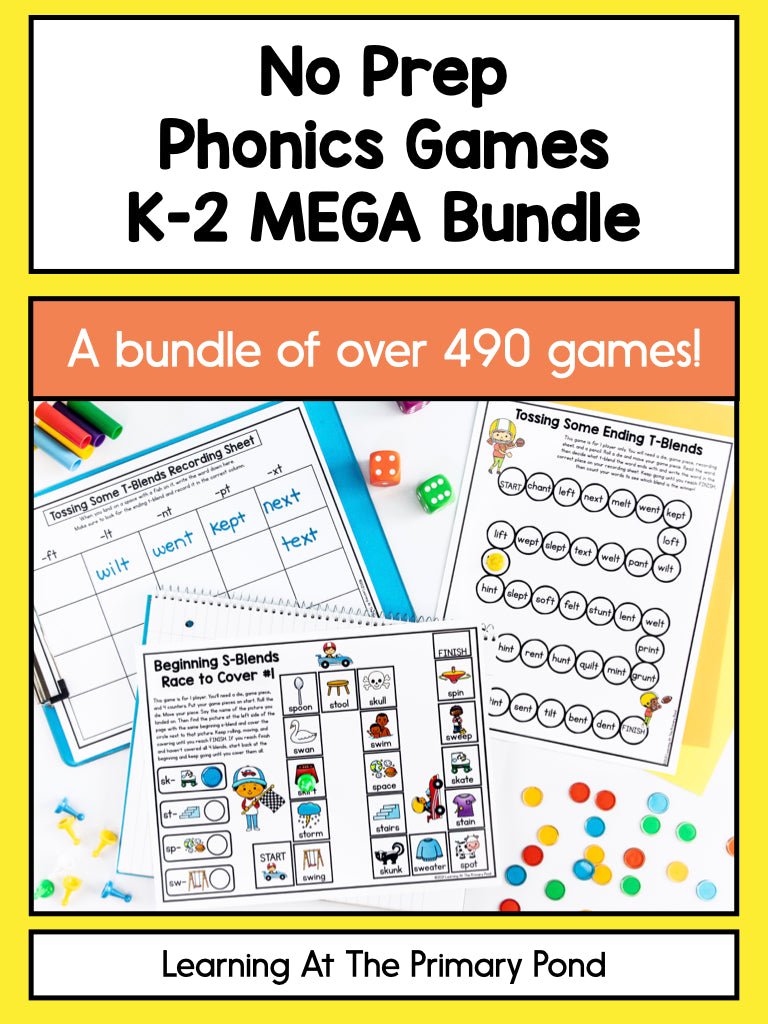
Great tips. Thank you!
Thank you for the tip on Trello. I just opened an account and am going crazy. This will be super useful for my school files.
Do you have a reading lessons package in Spanish?
Hi! Not at this time; so sorry!
Alison
Is your reading lesson bundle available in Spanish
Hi! Not at this time; so sorry!
Alison